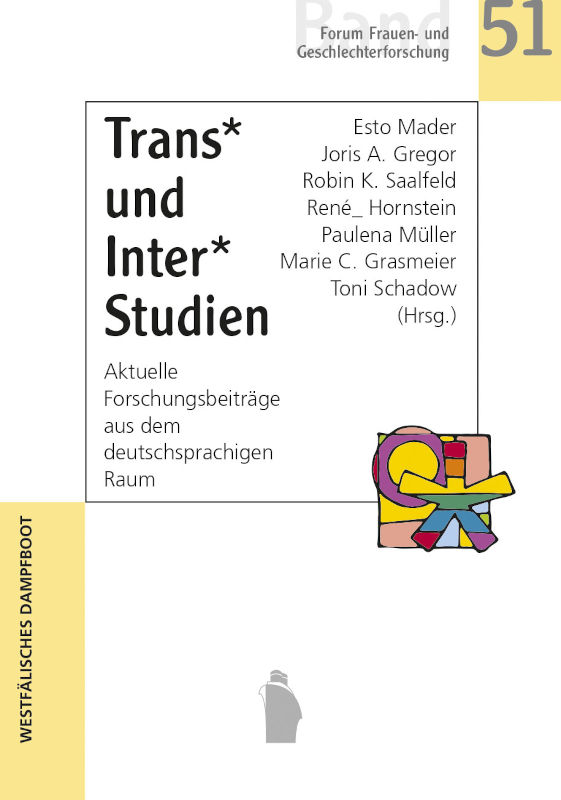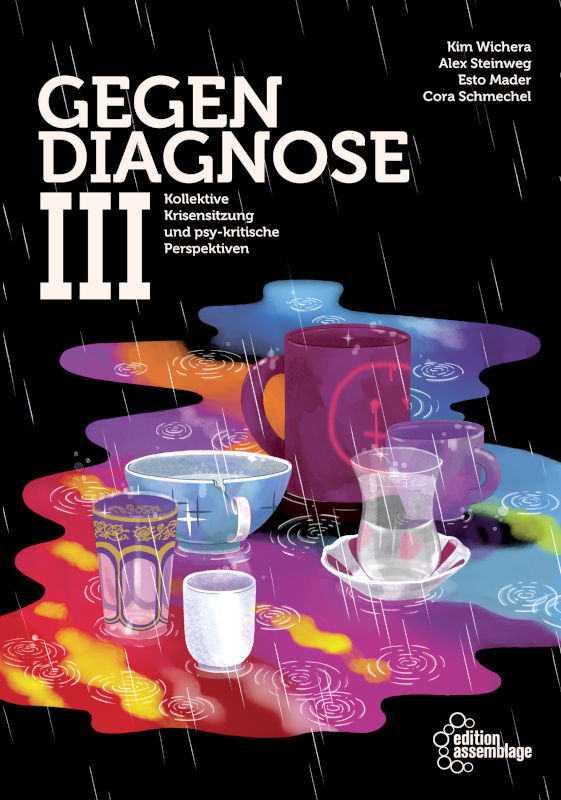Dr. Esto Mader
Diversity and Gender Equality
Center for Transdisciplinary Gender Studies
Humboldt University of Berlin
My research areas are sociology and gender studies with a focus on gender relations, queer theory and diversity. The analysis of inequalities and discrimination in everyday life, on the labor market, in organizations and in science and medicine is central to my research. This research approach combines critical perspectives on normativity and everyday experiences with the analyses of social structures and processes.
Books

Subjects who are commonly marginalised feel strong in queer spaces. By means of an imagined basic consensus and an own affective-aesthetic logic, a sense of home is created: “being different” is indulged, networks are built and people celebrate each other. Yet, even such spaces are structured by hierarchies, internal norms and exclusions of the scene, leading to constant negotiations which not only significantly impact the production of queer spaces, but also the abilities for action that may emerge from within them. Esto Mader uses diffractive methods to highlight the dynamics of queer spaces. This study concludes that fluidity is intrinsic to such spaces.

This volume makes a contribution to the relatively young German-speaking field of trans* and intersex* studies. The texts approach trans* and inter* from different disciplines and with a decidedly critical perspective on psychiatry, medicine and normativity. Their common ground lies in a productive critique of scientific and social discourses surrounding these phenomena and in questioning the relationship between society and the marginalized. The volume thereby updates the discourse on situated research initiated by the methodological postulates of Maria Mies in 1978 so highly significant for feminist research. It accordingly also regards itself as a contribution to the solidary connection between feminist research and queer theory. The Forum for Women’s and Gender Studies thus opens up a space within (queer) feminist discourse to focus attention on trans* and inter* voices.

The second volume focuses on the moments in which “we” pathologize and govern ourselves, and which role concepts such as mental health, illness, normality and personal responsibility play in this regard. Our ‘second counter-diagnosis’ is characterized by a an explicit and reflected diversity within our perspectives, as well as by a variety in the formats of the contributions: They range from abstract academic theory and analysis over autoethnographic approaches to very personal testimonies as well as to prose and include perspectives the people affected and their relatives just as much as perspectives of ‘professionals’. This juxtaposition of perspectives is to be understood as a critique of the prevailing power of definition of the psy-disciplines and their institutions. The contributions analyze mechanisms and effects of the neoliberal psychiatric-psychological health system and inquire possibilities of resistance on different levels.

The past few years have been marked by the global experience of the COVID-crisis. This volume therefore investigates experiences of crisis and collective practices in dealing with them. The contributions criticize psychiatric and psychological structures and institutions. The variety of studies is among other reflected in the formats of the contributions as Gegendiagnose III includes poems, song lyrics, and visual contributions.
Gegendiagnose III focuses on processes of pathologization and their consequences. Psychiatric and psychological structures and institutions are critically examined. The third volume distinguishes itself by offering reflections on the potentials and risks of collective practices and self-help.
Research areas
Gender relations and diversity in the labor market and in organizations
Gender in STEM
Queer, trans* and inter* studies
Anti-discrimination and intersectionality
Gender and diversity in the field of health/mental health
Critique of science and objectivity
